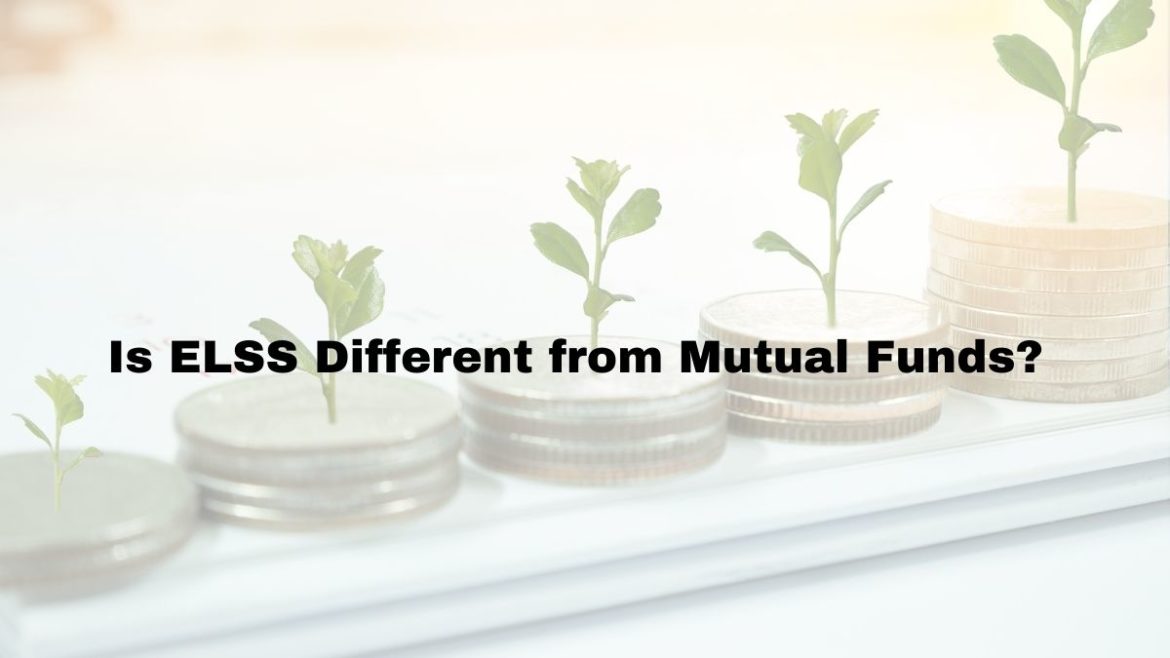

Mutual funds have revolutionized the way people invest. Earlier, risk-averse individuals preferred fixed deposits while risk-taking investors went for stock markets. However, lately, mutual funds are becoming a favourite among investors. They promise market-related returns while the risk is diversified over a wide portfolio. What’s more, even small investors can invest in a mutual fund scheme if they want to reap the returns promised by capital markets.
Mutual funds come in various types and ELSS plans are also one type of mutual fund scheme. However, many investors confuse between the two. While some believe that ELSS schemes are not mutual funds, others feel that both ELSS and mutual fund schemes are one and the same. Are these beliefs correct?
No, they are not. ELSS schemes are, actually, a subset of mutual funds. They are a type of mutual fund which has distinct features and benefits. Let us study ELSS and mutual funds in conjunction with one another –
ELSS and Mutual Funds
You can invest in ELSS and in mutual funds either through lump sum or through SIPs (Systematic Investment Plans– i.e. periodic installments).
Both invest in the capital markets and yield good returns.

Nature of investment
ELSS stands for Equity Linked Saving Scheme. As such, about 65% to 70% of the scheme’s portfolio is invested in equity shares. That is why ELSS plans promise good returns and are also prone to risks. Mutual funds, on the other hand, come in different varieties. There are debt mutual funds that invest a majority of their portfolio in debt instruments and equity mutual funds that have higher equity exposure, balanced funds that have a combination of debt and equity in moderate proportions and so on. So, while ELSS is primarily an equity fund, Non- ELSS mutual funds can be equity, debt, balanced, hybrid or any other type.
Tenure
ELSS plans have a lock-in period of 3 years. This means that your investments are locked in the scheme for three years and you cannot withdraw them. ELSS schemes are, thus, not very liquid. Non-ELSS mutual funds have no such lock-in period. You can redeem your investments whenever you like without any restrictions.
Tax benefits
ELSS is popular because it is tax-saving in nature. The investments you make, up to Rs.1.5 lakhs are exempt from tax under section 80C. Moreover, the interest earned and the redemption proceeds are also tax-free upto 1 lac of gain because they are called long-term capital gains.

The taxation of Non-ELSS mutual funds depends on the portfolio. The gains from equity mutual funds becomes tax-free upto 1 lac after 12 months. So, if you redeem your investment after a year, it becomes a long-term capital gain and is exempted from tax upto 1 lac and taxed at 10% on balance gain amount. For debt mutual funds, however, the redemption proceeds are taxable. If redeemed before 3 years, debt mutual funds are taxed at your income tax slab rate as short-term capital gains. If, however, you redeem your debt mutual fund after 3 years it becomes long-term capital gains and you get the benefit of indexation. The tax rate is 20% with indexation benefit.
Here is a comparative table for a quick analysis –
| Points of distinction | ELSS | Other Mutual Funds |
| Type | Equity oriented mutual funds | Can be equity, debt, hybrid, balanced, etc. |
| Tenure | Compulsory lock-in period of 3 years | No lock-in tenure. Can be redeemed when desired. |
| Taxation | Investments up to Rs.1.5 lakhs are exempted under Section 80C. ELSS are tax-free upto 1 lac after 12 months. | Investment is taxable. Equity mutual funds are tax-free upto 1 lac after 12 months. Debt mutual funds are taxed at income tax slab rate if redeemed before 3 years. If redeemed after 3 years they get indexation benefit and the tax rate is 20%. |
| Suitability | Investors who are looking to invest for tax saving purposes for long-term as ELSS have a lock-in of 3 years. | There are various Non-ELSS mutual fund options for all risk appetites and investment horizons. |
| Non-suitability | Investors towards retirement (low-risk appetite) or who have already exhausted their Sec 80c limit, can look at other tax saving options. | Investors with high to moderate risk appetite should invest in Non-ELSS plans. |
So, the next time you go shopping for investments, remember that ELSS and other mutual funds are not the same. They differ from each other in various aspects, as explained above. So, be wise and choose your investment instrument after a thorough analysis of your investment goals, time horizon and tax benefits. Do consult an expert, should you require help with picking up the best plans as per your requirements.
Related Posts
Stay up-to-date with the latest information.


